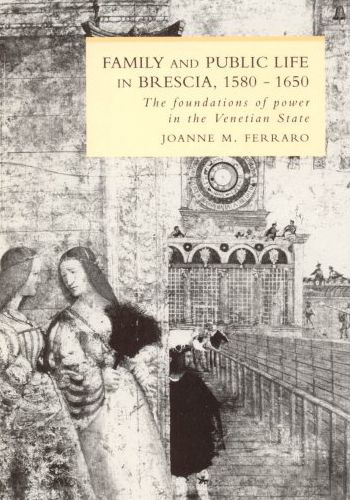 Family and Public Life in Brescia, 1580-1650: The Foundations of Power in the Venetian State
Family and Public Life in Brescia, 1580-1650: The Foundations of Power in the Venetian StateCambridge University Press, 1993 (Revised edition 2003)
This book focuses on the behavior of the ruling families of Brescia, a rich and strategically vital city under Venetian rule, during the late sixteenth and early seventeenth century.
The first part of the book conceptualizes the civic leadership of Brescia, with a profile of its origins and a brief history of the process of aristocratization. Further, it examines the relationship between family structure and the local socio-political structures. Size, wealth, education, and marriage ties were all pivotal factors which helped determine the family's position in public life. Its strength rested ultimately on its continuity over time. Women and women's property are given careful attention. The second part places the Brescian elite within the Venetian state. Besides controlling urban political institutions, the Brescians held strong economic links with the surrounding countryside, the basis of their power, and they enjoyed ample authority in the rural communities subject to the city. This section of the book examines the different ways in which these families sought to preserve their control over local resources. It also analyzes the Brescian civic leadership's weight in public life, in relation to that of Venetian authorities, illuminating some of the important ways in which the Venetian state was knit together.
Copyright © 2023 - All Rights Reservedrur | Document Reader